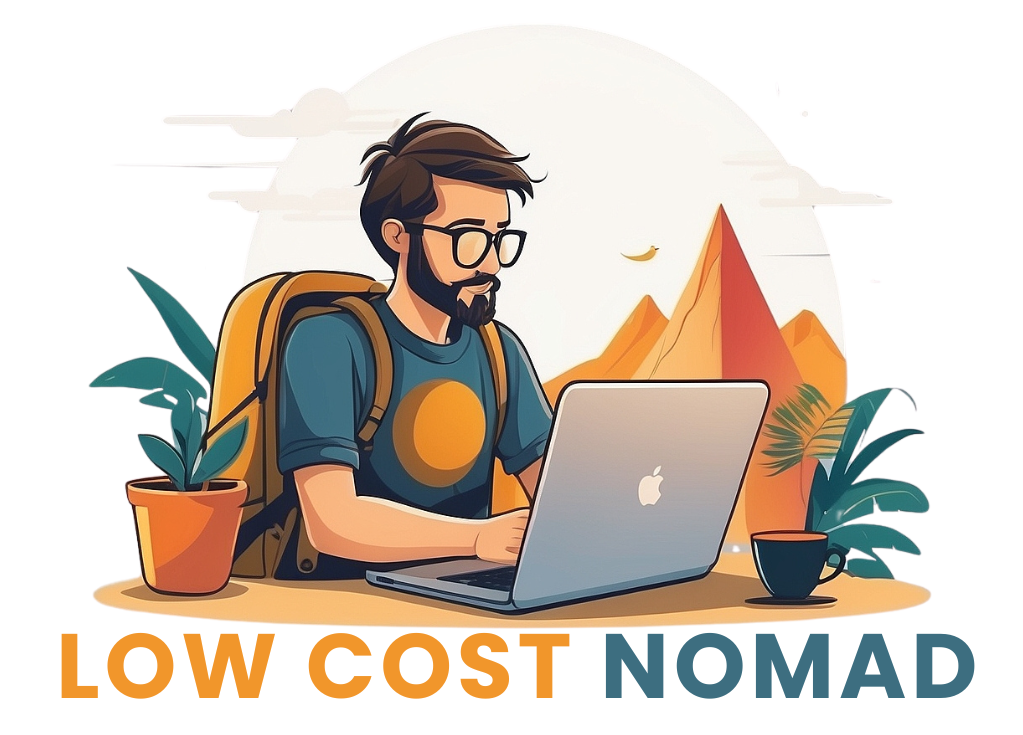How to Travel Full-Time on a Freelancer’s Budget: Your Comprehensive Guide
Many people dream of seeing the world, exploring new cultures, and waking up in a different place whenever they choose. For a long time, this kind of life seemed only possible for the wealthy or those living a very basic, backpacker lifestyle. But what about freelancers? Can someone with a variable income truly manage how to travel full-time on a freelancer’s budget? The exciting answer is yes, absolutely! It takes careful planning, smart financial habits, and a willingness to live creatively, but living the dream of full-time travel as a freelancer is within reach for many.
This guide will break down exactly what it takes. We’ll look at how to manage your money when your income changes, where to find work that lets you travel, and most importantly, how to cut costs without missing out on amazing experiences. We’ll show you how to make freelance travel a sustainable reality, proving that you don’t need a huge salary to become a digital nomad and explore the globe. If you’ve ever wondered if you could really combine your freelance career with a life of adventure, keep reading.
Understanding the Freelancer’s Financial Landscape
The first step to successful full-time travel on a freelancer’s budget is to truly understand your money situation. Unlike traditional employees with a fixed monthly salary, a freelancer’s income can go up and down. One month might be fantastic with lots of projects, while the next could be slower. This is the biggest challenge you need to plan for.
Because your income isn’t guaranteed, budgeting isn’t just helpful, it’s absolutely essential. You need to know exactly how much money is coming in, how much is going out, and what your minimum needs are. This means tracking every dollar, peso, or euro you spend. Tools like budgeting apps or a simple spreadsheet can be your best friends here. Knowing where your money goes allows you to find areas where you can save.
It’s also crucial to build a financial cushion. Since you might have slow months, having savings to cover your expenses for a few months (ideally 3-6) is really important. This emergency fund gives you peace of mind and prevents stress when income is low. Living and traveling full-time as a freelancer requires discipline, especially with your finances.
Making Money While Traveling: Location Independent Work
To sustain full-time travel on a freelancer’s budget, you need income that isn’t tied to a specific location. Luckily, the world of freelancing is perfectly suited for this. Many skills can be turned into remote work that you can do from anywhere with a good internet connection.
Common freelance jobs that work well for travel include:
- Writing and Editing: Articles, blog posts, website copy, proofreading.
- Graphic Design: Logos, websites, social media graphics, illustrations.
- Web Development: Building and maintaining websites and applications.
- Social Media Management: Managing social media accounts for businesses.
- Virtual Assistant: Providing administrative, technical, or creative help remotely.
- Online Tutoring/Teaching: Teaching languages or subjects to students online.
- Marketing and SEO: Helping businesses improve their online presence.
- Translation: Translating documents or conversations.
Finding clients is key. You can use online platforms like Upwork, Fiverr, Freelancer.com, or specific job boards for your niche (like ProBlogger for writing or Dribbble for design). Networking online and reaching out directly to potential clients are also great strategies. Building long-term relationships with clients provides more stable income.
Managing your work schedule while traveling requires discipline. You’ll need to set aside dedicated work hours, even if you’re in an exciting new place. Think about time zones when scheduling calls. Find reliable internet – this might mean working from cafes, co-working spaces, or ensuring your accommodation has good Wi-Fi.
Cutting Costs on the Road: Living Smart
Earning money is one part of the equation, but spending smartly is just as, if not more, important for full-time travel on a freelancer’s budget. This is where you can make the biggest difference in making your budget last.
Accommodation: Your Biggest Expense
Where you sleep will likely be your largest cost. To save money, avoid standard hotels for long stays. Here are cheaper alternatives:
- Hostels: Offer budget beds (dorm rooms are cheapest), kitchens to cook, and social atmospheres. Good for meeting people.
- Guesthouses/Budget Hotels: Often cheaper than big hotels, especially in many parts of Asia and Latin America.
- Long-term Rentals: For stays of a week or more, renting an apartment or room on platforms like Airbnb, Booking.com (look for apartments), or local sites is often significantly cheaper per night than short stays. The longer you stay, the better the deal usually is.
- House Sitting: Live for free in someone’s home in exchange for taking care of their pets or property. Websites like TrustedHousesitters connect homeowners and sitters. This can dramatically lower your costs.
- Couchsurfing: Stay on someone’s couch for free and get a local experience. It’s not for everyone, but it’s budget-friendly.
Choosing accommodation with a kitchen allows you to cook, which leads us to the next point.
Food: Cook, Cook, Cook!
Eating out for every meal quickly adds up. While trying local food is part of the travel experience, cooking your own meals most of the time is a huge money saver.
- Shop at Local Markets and Supermarkets: Buying ingredients and preparing your own food is always cheaper than restaurants.
- Eat Street Food Wisely: In many countries, delicious and cheap meals can be found on the street. Just make sure it looks clean and busy with locals – that’s usually a good sign.
- Limit Restaurant Meals: Treat eating out as a special occasion, not an everyday event.
Transportation: Slow and Local
Flying frequently is expensive and tiring. Embrace slower, cheaper forms of travel:
- Buses and Trains: Often much cheaper than flights, especially for shorter distances between cities or countries. They also let you see the landscape.
- Budget Airlines: If you must fly, use comparison sites (like Skyscanner, Google Flights) and book in advance. Be aware of extra fees for luggage, seat selection, etc.
- Travel Overland: Explore regions by land rather than jumping between distant locations by plane.
- Local Transport: Use public buses, trains, subways, or ride-sharing apps instead of taxis. Walk or bike whenever possible.
Activities: Seek Free and Low-Cost Fun
You don’t need to pay for expensive tours every day to have amazing experiences.
- Free Walking Tours: Available in many major cities (tip the guide!).
- Parks and Nature: Hiking, visiting national parks (sometimes have entrance fees, but often cheap), relaxing by a beach or lake.
- Museums and Galleries: Look for free entrance days or times.
- Just Explore: Wander through neighborhoods, visit local markets, sit in a park and people-watch. Sometimes the best experiences are free.
Choosing Destinations Wisely: Where Your Money Goes Further
Your freelancer travel budget will stretch much, much further in some parts of the world than others. Choosing affordable countries is one of the smartest things you can do to make full-time travel on a budget possible.
Generally, places in Southeast Asia (like Thailand, Vietnam, Cambodia, Indonesia), Eastern Europe (like Portugal, Spain (parts of it), Hungary, Czech Republic, Georgia, Balkan countries), and parts of Latin America (like Mexico, Colombia, Peru) are known for being more budget-friendly than Western Europe, North America, or Australia.
Let’s look at a simple comparison example:
Example Monthly Budget (Very Rough Estimates):
- Living in London, UK:
- Rent (basic room): $800 – $1200+
- Food: $400 – $600
- Transport: $150 – $250
- Activities/Other: $200+
- Total: ~$1550 – $2250+ per month
- Living in Chiang Mai, Thailand:
- Rent (nice apartment): $300 – $600
- Food (mix of cooking/street food): $200 – $400
- Transport (scooter rental/Grab): $50 – $100
- Activities/Other: $100+
- Total: ~$650 – $1200+ per month
This simple example shows how dramatically your costs can change based on location. Research the cost of living in different cities and countries before you go. Websites like Nomad List can give you an idea of costs, internet speed, and other factors important for digital nomads.
Managing Your Finances on the Road
Staying on top of your money is critical when you’re constantly moving.
- Get a Bank Account with Low or No International Fees: Look for banks that don’t charge fees for withdrawing money from foreign ATMs or for foreign transactions. This can save you a lot of money over time. Charles Schwab, TransferWise (now Wise), and Revolut are popular choices among travelers.
- Use Budgeting Apps: Continuously track your spending. Apps like Mint, YNAB (You Need A Budget), or Trail Wallet are designed to help you see exactly where your money is going.
- Know Currency Exchange Rates: Be aware of the current exchange rate so you know how much things really cost.
- Have Multiple Ways to Access Money: Don’t rely on just one card. Have a debit card, a credit card, and some emergency cash stored separately.
- Set Financial Goals: How much do you need to earn each month? How much do you want to save? Having targets helps you stay focused.
Staying Productive as a Traveling Freelancer
To maintain your income and continue your freelance travel lifestyle, you need to be productive. This can be challenging with new sights and distractions constantly calling your name.
- Establish a Routine: Try to keep a regular work schedule, even if the hours vary slightly.
- Find Good Workspaces: Don’t just work from your bed. Look for cafes with good Wi-Fi, co-working spaces (can be worth the cost for reliable internet and a work environment), or libraries.
- Manage Your Time: Use techniques like the Pomodoro method (work for a set time, take a short break) to stay focused. Plan your workday and your sightseeing time separately.
- Ensure Reliable Internet: This is non-negotiable for most remote work. Research internet availability in your chosen destinations and accommodation. Consider getting a local SIM card with data or a portable hotspot.
Handling Logistical Challenges
Living a life of full-time travel on a freelancer’s budget isn’t just about money and work; there are practical things to consider too.
- Visas: Research visa requirements for your passport for every country you plan to visit. Pay attention to how long you can stay (like the 90/180 day rule in the Schengen Area in Europe). Overstaying a visa can cause serious problems.
- Health: Travel insurance is vital. Look for insurance specifically designed for long-term travelers or digital nomads (like SafetyWing or World Nomads). Research required vaccinations for your destinations. Know how to find a doctor if needed.
- Safety: Be aware of your surroundings, especially in unfamiliar places. Research common scams or safety concerns for your destination. Use common sense.
- Mail and Admin: How will you receive mail? Consider a virtual mailbox service that scans your mail and lets you access it online. Keep digital copies of important documents.
The Mindset of a Traveling Freelancer
Living the dream of freelance travel requires a specific mindset. It’s not a constant vacation. There will be challenges: finding good Wi-Fi, dealing with visa runs, feeling lonely sometimes, missing friends and family, or having a slow work month.
- Be Flexible and Adaptable: Things won’t always go according to plan. Be ready to adjust your plans.
- Be Patient: Dealing with different cultures, languages, and bureaucracy can be frustrating. Take a deep breath.
- Stay Motivated: Remind yourself *why* you chose this lifestyle. Connect with other digital nomads online or in person for support and community.
- Embrace Minimalism: Traveling full-time means living out of a suitcase or backpack. You’ll learn to live with less stuff, which is freeing and saves money.
Pros and Cons of Full-Time Travel as a Freelancer
Like any lifestyle, traveling full-time on a freelancer’s budget has its ups and downs.
Pros:
- Freedom and Flexibility: Choose where you live and when you move.
- New Experiences: Constantly learning about new cultures, languages, and ways of life.
- Seeing the World: Visiting places you’ve only dreamed of.
- Meeting New People: Connecting with locals and other travelers/nomads.
- Lower Cost of Living: If you choose affordable destinations smartly.
- Personal Growth: Becoming more adaptable, independent, and resilient.
Cons:
- Unpredictable Income: Financial stress during slow work periods.
- Loneliness/Missing Home: Being away from friends, family, and familiar comforts.
- Logistical Hassles: Visas, banking, health issues abroad.
- Finding Reliable Internet: Can be a constant challenge.
- Lack of a Fixed Base: Some people miss having their own long-term home.
- Discipline Required: Balancing work and travel fun needs self-control.
Weighing these points helps you decide if this lifestyle is right for you. For many, the pros strongly outweigh the cons.
Putting It All Together: Practical Tips for Your Journey
Ready to start planning your life of full-time travel on a freelancer’s budget? Here’s a summary of key actions:
- Master Your Budget: Track everything. Know your minimum monthly expenses. Build an emergency fund.
- Secure Location Independent Work: Find freelance clients and projects you can do remotely. Ensure you have a reliable income stream.
- Choose Affordable Destinations: Research countries and cities where your money will last longer.
- Prioritize Cost-Cutting: Focus on cheap accommodation (rentals, hostels, house sitting), cooking meals, and using budget/slow transportation.
- Manage Finances Actively: Use a borderless bank account, track spending with apps, and understand exchange rates.
- Stay Productive: Create a work routine and find suitable workspaces.
- Plan Logistics: Research visas, get travel insurance, and have a plan for mail and emergencies.
- Develop the Right Mindset: Be flexible, patient, and connect with others.
Start small if you need to. Maybe try a month of remote work in a nearby, cheaper city or country to see how you like it and test your systems. This kind of test run can be invaluable.
Conclusion: Making the Dream of Freelance Travel a Reality
Living a life of full-time travel on a freelancer’s budget is not a fantasy; it is a completely achievable goal for many people. It requires hard work, discipline, and smart financial choices, but the rewards of freedom, adventure, and personal growth are immense.
By understanding the unique challenges of a freelancer’s income, mastering budgeting, choosing affordable destinations, and consciously cutting costs on accommodation, food, and transport, you can make your dream of seeing the world a sustainable reality. Combine this with finding stable remote work and managing the practicalities of life on the road, and you are well on your way.
Don’t let the idea of a limited budget stop you. Focus on making smart choices and prioritizing experiences over expensive luxuries. With the right planning and mindset, you can successfully navigate the world as a traveling freelancer and build a life that is both fulfilling and adventurous. Start your research today, make a plan, and take that first step towards your journey of how to travel full-time on a freelancer’s budget.




